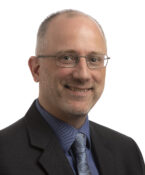Imagine a Better Way
In John Lennon’s powerful anthem "Imagine," he envisioned a better world through peace, love and understanding. Nearly 40 years later, his vision is still out of reach. Had he lived, Lennon would now be pushing 70, and it’s not hard to imagine him turning his artistic sensibilities (and biting wit) to the state of health care in his adopted country. What, I wonder, would he make of a World Health Organization (WHO) report that sandwiches U.S. health outcomes between those of Costa Rica and Slovenia?
"Help," indeed.
In the above-mentioned WHO-sponsored ranking, France and Italy took top honors for health outcomes, while the U.S. came in well down the list at 37th. More recently, the highly regarded Commonwealth Fund – a private foundation that promotes a high-performing health care system – issued a report ranking the U.S. last or next to last compared with Australia, Canada, Germany, New Zealand and the United Kingdom. The report’s parameters included quality, access to care, patient safety, efficiency and equity. The only area where the U.S. comes out on top is in cost: we pay more for health care per person, with fewer people covered, than any other advanced nation.
The greatest disparity between the U.S. and these other countries is the lack of universal health insurance coverage. All other major industrialized nations provide such coverage, and most have comprehensive benefits packages with no cost-sharing. Meanwhile, nearly 45 million of America’s citizens have no coverage at a given time and over 70 million Americans do not have health insurance at least part of the year. Equally troubling is that millions more Americans are underinsured. As a result, these individuals either go without care until a minor illness turns major, or fill up hospital emergency rooms for routine care. This stresses an already overburdened system to perform services it was never designed for, resulting in declining access for true emergency services, especially on nights and weekends.
Perhaps most shocking, America ranks dead last on almost all equity measures because of a huge disparity between quality of care given to richer and poorer citizens. In 2005, two-fifths of adults with below-average incomes went without needed care. They simply couldn’t spend money they didn’t have on doctor visits, tests and pharmaceuticals. To my mind, never has the phrase, "You get what you pay for," been more repellent.
However, there are some bright spots: we earn high marks in technology and innovation and we’ve also done better than most industrialized countries in reducing smoking. And most insured Americans get speedier service than their international counterparts when it comes to seeing a specialist or undergoing elective surgery.
But we rank last among 23 nations in infant mortality; near the bottom in healthy life expectancy at age 60; and 15th among 19 in deaths from a wide range of illnesses that would not have been fatal if treated in a timely and effective manner. Plus, our well-publicized obesity problem continues to spiral out of control. And as health care providers in other countries plug into the latest e-sharing technologies, many of our caregivers still rely on hand-scrawled notes pigeonholed in manila folders, thus limiting information access and better coordinated care.
Clearly, our first task is to reduce the enormous number of uninsured, alleviating a major reason for our poor standings on so many levels. The new administration is looking to other countries for best-practice examples of reducing uninsured levels while providing high-quality health care delivery, coordination and equity. Switzerland and the Netherlands both offer interesting examples of standardized benefits plans combined with tight regulation of insurance markets. In fact, some of these same concepts have been adopted by Massachusetts and are being considered by other states and federal policymakers.
Still, much remains to be done to lift our system above those of Chile and Morocco (33rd and 29th, respectively). To be fair, our country is larger and has more complex requirements than these smaller nations. But if countries with fewer resources can develop successful methods to give all their citizens high-quality health care, then surely we can, too. Peace, love and understanding may have been John Lennon’s utopia, but there’s always hope. As long as we have hope, we can imagine ways to better and more equitable health care for all. And if we can imagine it, we can do it.
Scott Ransom is president and professor in obstetrics, gynecology, health management and policy at the University of North Texas Health Science Center at Fort Worth.





Social media